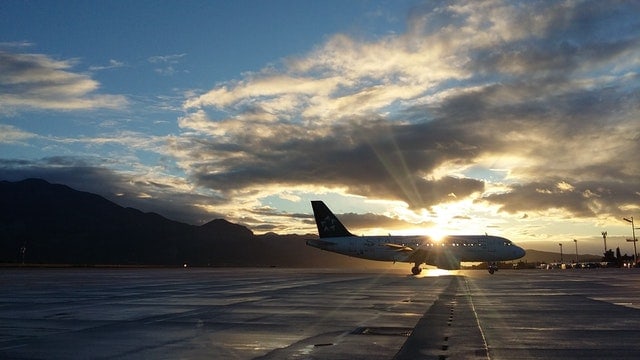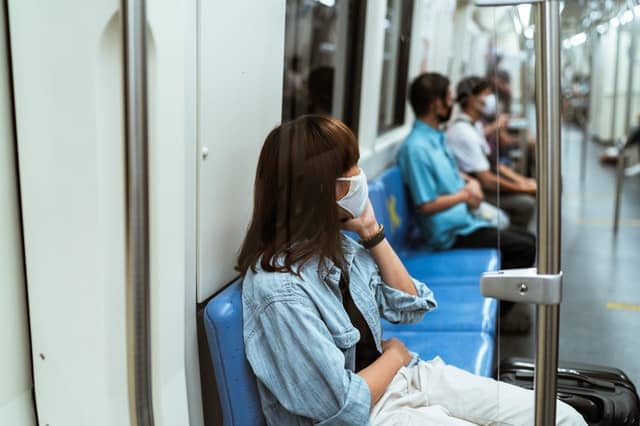“Never leave for tomorrow what you can accomplish today.” You may have heard of that quotation and its various versions before. It’s very true, especially in our society today, when the proper authorities are taking their time in processing projects and items that are meant to be for the good of their constituents. Even we are guilty of this at times. The act of procrastination is something that everyone experiences in their life, at least more than a dozen times. You may have seen high school students putting off their school projects until its deadline comes around the corner, You may even see office workers leaving off their paper work, until the very last day of the week, when it’s almost rest day. And then there are your local officials on the evening news, being berated for a public service that was supposedly done and delivered last year, and yet the project still hasn’t broken ground.
Indeed, we all like to put off our tasks at a much later time, only to finish it until the very last moment. Perhaps it has been rewired within the human brain, perhaps people are intimidated by the “high risk, high reward” system, perhaps people prefer an easier time frame than the usual, whatever it may be, it definitely slows down progress and spends a lot of otherwise well-utilized opportunities. This is very critical nowadays, due to the fact that everyone’s running against time. If the pandemic has taught us one thing, it’s that we should all be spending our time wisely. Many of our kababayans were hit with COVID-19, and unfortunately weren’t even able to make it through 2020. As tragic as it is, that is not even the whole story, as they are currently survived by their families, friends, and loved ones, the people who would miss them the most, and would surely love to spend time with them all over again, yet due, to their untimely passing, that is no longer possible. Let us all learn a value lesson from them, as the pandemic isn’t over yet, and there is definitely more to do and to accomplish.
In lieu of that, you may have a few unfinished businesses that you were not able to accomplish until now due to the current pandemic. It is only understandable that you’ve postponed it last year, as our government implemented strict measures before things got out of hand with the virus. There were lockdowns and varying community quarantine guidelines which limited all of our daily activities and planned tasks. Since then, many of us weren’t able to leave our homes and were confined within our own barangays. However, it is now 2021 and some of these safety measures have been relaxed in order to allow everyone (or at least a select few) to accomplish their tasks. Of course, the “new normal” introduced a couple of new procedures for us to follow, in terms of processing government documents, for example, yet, these changes aren’t really that different from the ones practiced before, with the minor tweaks being that all should wear their mask and face shield, and that everyone should follow social distancing guidelines.
With these new guidelines in place, should I still travel?
It depends. You see, if you’re on your way to process important documents such as government requirements and work files, then by all means, feel free to join the queue of anxious people hoping to get their files done on time. You’ve been leaving it off since last year as you’re trying to avoid the virus overall, which is the right thing to do. No amount of paperwork is justifiable enough for you to risk your health, after all. The thing is, you may have been oriented about the safety measures by now, well enough for you to know the dos and don’ts.
What are these dos and don’ts specifically?

There is no simple answer to this, since different barangays and regions within the Philippines are currently implementing their own set of community quarantine guidelines. You may know these guidelines as:
- Enhanced Community Quarantine or ECQ
Localities under an enhanced community quarantine (ECQ) are generally ordered to stay at home, with its residents restricted from traveling to other cities or barangays. Barangay governments can issue quarantine passes allowing residents to buy essential goods outside curfew hours and within the issuing barangays’ jurisdiction. - General Community Quarantine or GCQ
The general community quarantine (GCQ), which was introduced on May 1, is generally less stringent than ECQ. Public transportation is allowed at a reduced capacity and select businesses are allowed to operate at 50 to 100 percent of their regular capacity depending on their industry. Shopping malls are also allowed to operate, although only select stalls and stores are allowed to open. - Modified Enhanced Community Quarantine or MECQ
Similar to ECQ, however, this time people will be allowed to leave their homes only to obtain essential goods and go to work in industries allowed to resume by the government. - Modified General Community Quarantine or MGCQ
Similar to GCQ, as the movement goes back to normal, but mask-wearing, physical distancing, and other health protocols will still be enforced.
,br>
,br>
,br>
,br>
Depending on the number of positive cases within their barangay, a region may either implement a much stricter or a more relaxed selection from the four choices above. No worries, as your local LGUs are currently working with the Department of Health (DOH) to initiate these quarantine procedures, with the safety and well-being of the people as their top priority.
What should I do whenever I’d go outdoors to process important paperwork?
- Prepare everything the night before, just to make sure that you wouldn’t have to go back and forth due to forgotten requirements.
- Bring your very own pen. Avoid sharing any items with other people on the queue.
- Take the shorter route. You’ll reach your destination faster that way. Just make sure to follow proper social distancing and all of the strict traffic rules in place.
- If you’re going to commute, be sure to provide the exact amount. Receiving change from the driver or conductor would be risky, as COVID-19 may also be transmitted via contaminated money.
- Do all of your paper works in one go. Do it all in one day if you can, so that you wouldn’t need to go out every once in a while just to process separate documents. The lesser you’d go outdoors, the safer you’ll be from the virus.
- Bring a small bottle of alcohol to disinfect your hands every once in a while during the commute or travel.
Now, one of the main transactions and paper work that you may be planning to do while outdoors would be to remit money to your loved ones in the province. While it may seem nerve-wracking to do this activity due to the current pandemic, you shouldn’t worry, as there is a well-trusted establishment that would definitely look out for your well-being from beginning to end. Cebuana Lhuillier has put in place a couple of procedures and restrictions when it comes to protecting their customers against the virus. With the frequent disinfection, sanitation, and queuing rules set in place, no other place is safer than Cebuana Lhuillier branches. They’ve also made it convenient for all their patrons to process their transactions without any hassle. Time well-spent outdoors is equivalent to money well-spent as well, and at this point, every centavo counts, and no other remittance center would value your time and safety more than Cebuana Lhuillier, with their most reliable Money Remittance service ever. Be sure to visit the nearest branch now for more information.

